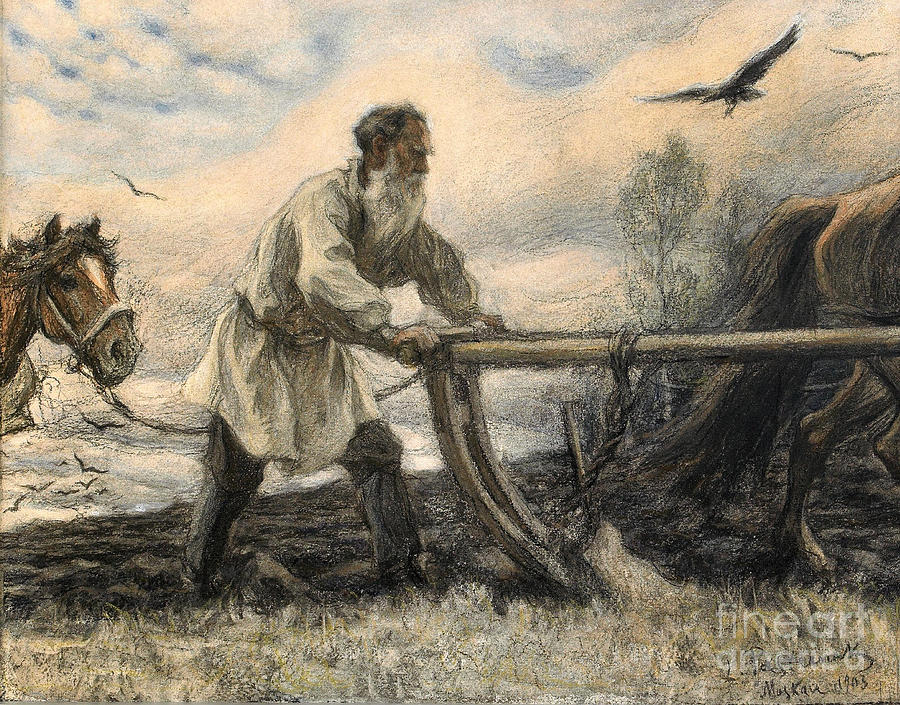Leo Tolstoy Archive
Written: 1912
Source: The Forged Coupon: And Other Stories, by Leo Tolstoy, 1912, Translated from the Russian by Herman Bernstein, published by Ogilvie Publishing Company, 57 Rose Street, New York, produced for Gutenberg.org by Judith Boss and David Widger, 2006.
Transcription/Markup: Andy Carloff
Online Source: RevoltLib.com; 2021

In the meanwhile, the affairs of Eugene Mihailovich had grown worse and worse. Business was very slack. There was a new shop in the town; he was losing his customers, and the interest had to be paid. He borrowed again on interest. At last his shop and his goods were to be sold up. Eugene Mihailovich and his wife applied to every one they knew, but they could not raise the four hundred rubles they needed to save the shop anywhere.
They had some hope of the merchant Krasnopuzov, Eugene Mihailovich’s wife being on good terms with his mistress. But news came that Krasnopuzov had been robbed of a huge sum of money. Some said of half a million rubles. “And do you know who is said to be the thief?” said Eugene Mihailovich to his wife. “Vassily, our former yard-porter. They say he is squandering the money, and the police are bribed by him.”
“I knew he was a villain. You remember how he did not mind perjuring himself? But I did not expect it would go so far.”
“I hear he has recently been in the courtyard of our house. Cook says she is sure it was he. She told me he helps poor girls to get married.”
“They always invent tales. I don’t believe it.”
At that moment a strange man, shabbily dressed, entered the shop.
“What is it you want?”
“Here is a letter for you.”
“From whom?”
“You will see yourself.”
“Don’t you require an answer? Wait a moment.”
“I cannot.” The strange man handed the letter and disappeared.
“How extraordinary!” said Eugene Mihailovich, and tore open the envelope. To his great amazement several hundred ruble notes fell out. “Four hundred rubles!” he exclaimed, hardly believing his eyes. “What does it mean?”
The envelope also contained a badly-spelt letter, addressed to Eugene Mihailovich. “It is said in the Gospels,” ran the letter, “do good for evil. You have done me much harm; and in the coupon case you made me wrong the peasants greatly. But I have pity for you. Here are four hundred notes. Take them, and remember your porter Vassily.”
“Very extraordinary!” said Eugene Mihailovich to his wife and to himself. And each time he remembered that incident, or spoke about it to his wife, tears would come to his eyes.